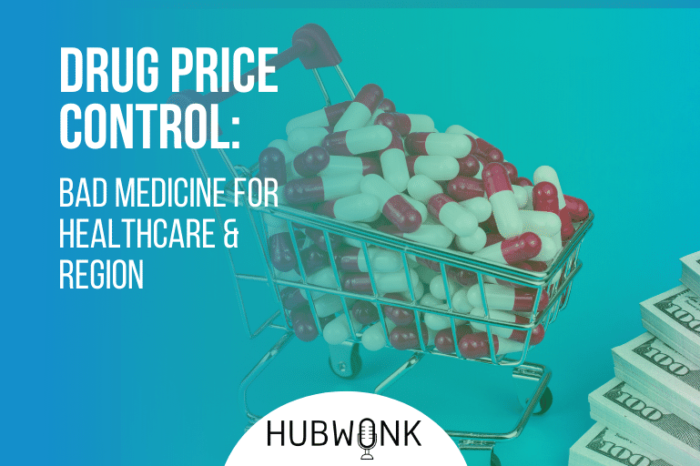Drug Price Control: Bad Medicine for Healthcare and Region
/in Featured, Healthcare, Podcast Hubwonk /by Editorial StaffHubwonk host Joe Selvaggi talks with Dr. Bill Smith, Director of Pioneer Institute’s Life Sciences Initiative, about the impact of the Inflation Reduction Act on long-term health costs. They discuss the bill’s unintended consequences, potential effect on the region’s vibrant pharmaceutical research and development sector, and what citizens can do about it.
Guest:
 William S. Smith is Senior Fellow and Director of the Life Sciences Initiative at Pioneer Institute. He has 25 years of experience in government and in corporate roles, including as vice president of public affairs and policy at Pfizer, and as a consultant to major pharmaceutical, biotechnology and medical device companies. He held senior staff positions for the Republican House leadership on Capitol Hill, the White House, and in the Massachusetts Governor’s office.
William S. Smith is Senior Fellow and Director of the Life Sciences Initiative at Pioneer Institute. He has 25 years of experience in government and in corporate roles, including as vice president of public affairs and policy at Pfizer, and as a consultant to major pharmaceutical, biotechnology and medical device companies. He held senior staff positions for the Republican House leadership on Capitol Hill, the White House, and in the Massachusetts Governor’s office.
WATCH:
Get new episodes of Hubwonk in your inbox!
Read a Transcript of This Episode
Please excuse typos.
Joe Selvaggi:
This is Hubwonk. I’m Joe Selvaggi.
Joe Selvaggi:
Welcome to Hubwonk, a podcast of Pioneer Institute, a think tank in Boston. The US Senate has passed the inflation reduction act, sending it to the house for its consideration on Friday, August 12th, while its supporters claim, it will combat inflation by raising more in taxes than it spends. And also includes hundreds of billions in green energy subsidies. The Bill’s most profound effect on Americans will be the changes it makes to our nation’s healthcare system. Seeking a savings of over $400 billion of the next 10 years. Lawmakers are mandating price controls over those drugs purchased by Medicare by reducing the time in which drug companies can freely set prices for their newest discoveries. While in the short term, insurance companies may pass along the savings of lower price drugs. The long term effects on the pharmaceutical industry could be to substantially hobble new drug discovery and jeopardize the health of a sector that represents three and a half percent of U S GDP and directly employs nearly a million people for Massachusetts residents who enjoy the line’s share of those high paying stem jobs.
Joe Selvaggi:
The negative growth effects would extend to research labs, hospital grants, production facilities, and intellectual property assets. Should our Massachusetts house delegation vote to support this bill despite its potential harm to a vibrant local industry, or should Democrats and Republican voters alike, regardless of their view of other aspects of the inflation reduction act, contact their representatives and tell them to vote. No, my guest today is pioneer Institute’s visiting fellow of life sciences. Dr. Bill Smith bill will share his views on the aspects of the inflation reduction act that directly affect the pharmaceutical industry and explain why the well intended provisions in the bill may have the effect of severely reducing new drug discovery, raising the long term cost of our healthcare system and jeopardizing a Massachusetts centered industry. That is a crown jewel of the American economy. When I return, I’ll be joined by Dr. Bill Smith.
Joe Selvaggi:
Okay. We’re back. This is Hubwonk, I’m Joe Selvaggi, and I’m now pleased to be joined by a Hubwonk listener favorite and Pioneer Institute fellow in life sciences, Dr. Bill Smith. Welcome back to Hubwonk, Bill. Thank you, Joe. Glad to be here. Okay. Nowfor the benefit of our listeners, I want to put some contexts we’re recording this podcast Monday, August 8th. We had planned this episode on short notice to hopefully activate our listeners to reach out to their, their Congressman or Congress congressional representative and make to either make in changes or to repeal altogether or not pass the inflation reduction act, which just passed in the us Senate ands headed to the house of representatives this Friday. So that’s our goal to, to activate our listeners. And and we wanna activate them for a particular aspect of this rather large. I think it’s a $791 billion bill and that’s how it affects the drug industry. So let’s, it’s a complex issue. It’s important issue. It affects us here, Massachusetts, particularly. So let’s start at the beginning at the very beginning with how drug companies make their money, particularly how patents affect how drug companies make their money. So bill, you are a, a student of the us pharma pharmaceutical industry. Let’s start at the beginning. How do drug companies make money and how do drug patents affect how they make their money?
William Smith:
Well, pharmaceutical companies, Joe invest huge sums in R and D. They’re the most R and D intensive industry in the world. And they they try to find new discoveries, new drugs and if they get a promising molecule in the R and D process, typically they’ll put a patent on it. And because they think they think it’s gonna work. 90% of them don’t work 90% of clinical trials fail, but you know, they, they put patents on, on promising molecules that patent lasts for 20 years. But part of that time, they’re not selling the drug because it’s in the R and D process not been approved by the FDA yet. So if they can get it through the clinical trials and approved by the FDA, they might have 13, 14 years to sell it as a patented product. And what patented product means is that nobody could copy it and sell it. You can, you you’re the exclusive seller of that particular product. And that’s where they make their money because they can price it in a way it’s that essentially they have a monopoly on that product for a certain period of time when that pat patent expires generic companies can come in and copy it. And typically the price drops dramatically meant maybe 95%.
Joe Selvaggi:
All right. So let me, let me unpack that. So what we’re talking about with a patent in a drug is you’ve got an exclusive right to sell. As you say, a monopoly that lasts a fixed number of years for particular molecule, and then ultimately market forces take over when it’s no longer a monopoly, somebody who just can take this the formula and make it cheaper sells it for the price of making a pill, which is, which is negligible. So how long is it now? And I think there’s a differentiation in this bill between large molecules and small molecules. Tell us now how long the patent is, and then give us a little overview of what the difference between as you mentioned, molecules.
William Smith:
Yeah. So that the bill doesn’t necessarily address patents. Although it essentially does what it says is drugs that don’t have any competition, meaning they’re in the patented phase. If you’re a small molecule drug, we can start putting price controls. The federal government can start putting price controls in Medicare on that bill after nine years for biologics or more complex molecules, they, they give 13 years before they’ll allow price controls to kick in that, that bifurcation between small molecules and large molecules, I think is very unhealthy for the system, because right now the patent life is equivalent to, for both those types of drugs. And what will happen undoubtedly is if, if this bill becomes law, pharma companies and biotech companies will start pouring money into biologic drugs, those large molecule drugs, because they, they get longer period without price controls, where they get four more years to sell without price controls and small molecule drugs will be neglected.
William Smith:
And small molecule drugs are typically the ones you get in the pharmacy, in a pill. And, and it, it comes in a yellow bottle. Those are the ones that really drop in price when the patent expires that because generic copy, generic companies can easily copy a small molecule drug, large molecule drugs are harder to copy. They’re harder. The manufacturer, the molecule itself is larger and more intricate. And so manufacturing, it is very difficult and copying it is very difficult. So you, you get a reduction in so-called biosimilars there’ll be a reduction in price, but it won’t be the same amount of reduction that you’ll find with small molecule drugs.
Joe Selvaggi:
So, okay. For the lay people in our audience, what we’re talking about is small molecules are they come in pill form and you get, ’em go to CVS and you get your prescription and you
William Smith:
Take ’em yourself,
Joe Selvaggi:
You know, take ’em yourself. And, and the large ones are the ones, maybe in a syringe that you’re gonna go to a doctor. And, and under the, the care of a, a supervision of a nurse or a doctor, you’re gonna get that in a hospital. So pharma,
William Smith:
Yeah, it might be infused, might be injected, but typically you might have to go to a, a specialty pharmacy to get administered that large molecule drug.
Joe Selvaggi:
So you’ve got drug companies and they’ve got a choice. They can plow our research and development into smaller, large, and this incentive change in incentive structure rather than having an even playing field will steer them away from the shorter period of time of, of let’s say price prerogative and, and steer towards where they’ll have a 13 year window before price controls kicking rather than the nine year window where price controls
William Smith:
Kicking. Right? So the four year differential is, is worth billions of dollars to pharma companies. I mean, they’re gonna, they’re gonna, they’re gonna look for large molecule drugs and, and they’re gonna cancel research projects for small molecule drugs. There’s, there’s just no doubt.
Joe Selvaggi:
So in economics, perhaps a, a very basic level one company’s profits is at one con another consumer’s cost. Why isn’t the savings of billions of dollars to drug consumers not good news?
William Smith:
Well, because a, as I said, you know, know if you dry up the pipeline for small molecule drugs, you’re gonna have less generics. And generics are a very important saver of funds for the healthcare system. You know, I I’ve said this before in your podcast, but when I was at Pfizer Lipitor was our largest selling drug. It’s sold for about $4 a pill which isn’t which relatively inexpensive, but it’s $4 a day. So when it went to generic, however, when it’s patent expired, it it’s price dropped from $4 a day to 4 cents a day. I’ve been told by some insurance executives. So the savings for generic, small molecule drugs is enormous. And if you dry up the pipeline for those, you’re gonna, you’re gonna end up costing consumers, more money out of pocket. They’re not gonna be able to go get a generic drug for $5. They’re gonna be paying co-insurance and, and deductibles on a large molecule drug that fits more expensive.
Joe Selvaggi:
So, okay. We’re, we’re really talking about removing some of the financial incentives to develop new drugs, but again, as someone coming from the drug industry there’ll be fewer new drugs developed, but aren’t drug companies already making such a fortune that surely just making slightly less wound, put the wet blanket on, on the R and D pipeline. Do you, do you think it will?
William Smith:
Well, if you, if you look at Avele did a study on, on this bill and they, they argued that over 10 years, this bill would result in a revenue loss for the industry of 455 billion. Now that’s about 15% of, of industry revenue. I don’t know many companies that can take a 15% hit in revenue and not scale back R and D and, and other expenses that, so the, the industry is definitely gonna contract, and that’s gonna have an impact. That’s gonna ripple into the biotech community, into hospitals, into developers who build lab space into anybody who makes money off this industry.
Joe Selvaggi:
Yeah. I in preparing for today’s show, I did a quite a bit of research. I found a very recent report from the university of Chicago that sort of gave it a overview of the pharmaceutical industry. I, I just take a, an aside and just read the, sort of the intro of, or summary of the finding. It said the pharmaceutical industry accounts for 3.4% of the growth domestic product, yet it conducts 17% of all business funded research and, and development R and D investment. It spent nearly a trillion dollars on research and development between 1999, 2020 with an increase of more than 50% between 2015 and 2020, when that total reached 91 billion in one year, the increased R and D was accompanied by 60% increase in food and drug administration, annual average drug approval. So they’re approving more drugs over that time. In addition, the pharmaceutical industry reinvest 27.7% of its sales into R and D approximately six times higher than similar investments in other industries.
Joe Selvaggi:
This is where it gets into detail. The economic impact of the pharmaceutical industry goes beyond the 811,000 direct employees who have good jobs at high wages and includes the highest percentage of stem workers by supporting another 4 million jobs. Many of them here in Massachusetts, and of course the industry creates safe and effective. COVID 19 vaccines in an extraordinary short period of time, along with new treatments, which is saved and will save millions of lives. So that’s a sort of a, a rah for the industry and gives you a sense of the size and scope and how much R and D’s going into it. Why is such a, a positive industry, such a, an industry says, saves so many millions of lives. Why do you think it it’s painted with the black hat? Why is it so maligned in today’s media and, and political rhetoric?
William Smith:
<Laugh> well, Joe, I have, I think I’d have to wax philosophical with about that question because I think what, what happens with pharma companies and, and to some degree oil companies, when you make a product that people need as an essential product for them to live price is always gonna be politically controversial. Nobody cares about the price of a Maserati, right? The Maserati can price their sports cars any way they choose, and they’re not gonna be politically damaged. But when you get into industries that make essential or life saving products, the price becomes a political football. And, and, and that’s the case. And that’s the case in the pharmaceutical industry, particularly with the patent issue that we talked about, where they have monopoly pricing for a certain period of years. They, now, when I say they have monopoly pricing, they can product price their product the way they want, but they, there’s not necessarily a lack of competition. There may be different molecules that work on the same disease that they have to compete with on price and other things. So it, it’s not a monopoly in the pure sense of the word but they do get to price their product the way they want when it’s under pat
Joe Selvaggi:
Indeed. And you and I, again we’re covering some familiar old ground here. You’re coming from the pharmaceutical industry, but we’ve talked about many of the, the opportunities for savings in the healthcare industry. I think a lot of people imagine all the healthcare costs again, we, we have per capita twice what the rest of the, the, the modern first world, whatever we wanna call it, our, our world competitors, we pay twice as much on how our healthcare system as they do. And a lot of people want to attribute that increas in costs to high drug costs. Let me again, I, I, we we’ve heard how you see the industry. Let me just, again, quote from that same university of Chicago study, which said the primary source of spending in healthcare in the United States is on labor, such as doctors, nurses, or assistants, which make up over 70% of overall spending similar to other us industries.
Joe Selvaggi:
We find that during the last 20 years, profits and sales by research based pharmaceutical companies have made up only 1% and 7.5% of total healthcare spending respectively. So in addition, annual sales growth contributed to negative 4.5% to annual growth in total healthcare spending ING to some drug co cost lagging increases in overall health spending increases. We therefore summarize the evidence based on the impact of biopharmaceutical innovation on overall healthcare spending, which has been addressed by a large literature so-called cost offset of new drugs. We find that these studies report an average cost offset for medical innovation or total cost decrease of $151 per new drug. We estimate how much recently proposed us price controls on drugs in the us would raise healthcare spending and find that the total healthcare spending would increase by 50.8 billion over the next 20 year period. So what they’re saying is by controlling costs, we reduce innovation and we increase costs to F healthcare consumers. It seems counterintuitive, but the research suggests it is so say more about why you think this is, this is
William Smith:
Well, let’s make, let’s make it sort of intuitive. Cuz I have a real life anecdotal example of how new drugs end up saving the healthcare system money. My younger sister was for many years, a cardiac surgical nurse. She assisted cardiologists in doing bypass surgery and, and business was good. She was doing two or three operations a day sometimes. And, but statin drugs had not yet appeared on the market. And when statin drugs appeared on the market, she became a hospital administrator because nobody was doing cardiac bypass surgery, which runs between a hundred and $200,000. So for an inexpensive statin prevented a large number of, of cardiac bypass operations and all the labor costs, all the operating costs associated with those. So yes, it’s, it may sound counterintuitive. That’s spending on drugs, saves money, but in real life, it’s, it’s not counterintuitive. There are, there are many, many examples of how a drug therapy talk about hepatitis C or how a drug therapy saves so many costs on in the out years. And that, that Chicago study that, that you referenced basically concluded that price controls would reduce the number of new drugs by 135 and the cost savings from 135, the loss of 135 drug new drugs would raise healthcare spending overall by 50 billion. So over 20 years. So, you know, it may sound counterintuitive, but I don’t believe it because if you have a very effective drug therapy, you’re gonna prevent surgeries and doctor visits and MRIs and a lot of things.
Joe Selvaggi:
Yes. I think it’s a really a time function. I, I think the supporters of of this kind of legislation imagine everything that needs to be invented has been invented and therefore let’s wave a wand and make it all free, not accounting for all the drugs that will not be developed into the future. And if we, we think, okay, everything’s already been invented. Imagine if we had taken that position 20 years ago, you described the, the creation of statins. We didn’t know there was such a thing and now there is, and 20 years, hence there may be other fantastic new cures let’s, let’s say Alzheimer’s or, or who knows that will never be realized because people will not have an incentive to take the chance, do the R and D develop it. And ultimately with the payoff of, of a, of a new drug, is that, do I think, you think I have it about right?
William Smith:
Yeah. It’s it it’s, I think it’s even more tragic than the way you describe it because we are on the cusp of so many breakthroughs, you know, with the mapping of the human genome and gene therapies and cell therapies, all these breakthroughs are we’re right on the cusp of, of curing terrible diseases like sickle cell disease and hemophilia, whole bunch of really tragic disease that play plague mankind for forever. And to take this amount of R and D money out of the system right now is just tragic in my view because we are on the cusp with some incredible breakthroughs
Joe Selvaggi:
Now, PI pioneer and, and, and this podcast, we, we don’t live in the ether. We, we broadcasting from high, a top, a beacon hill. And so we live in Massachusetts and this is not just an academic question. This is a industry that is very important to our our economy. So this particular topic touches two things we like to talk about here on how long we like to talk about healthcare and innovations and ways to make it more efficient, more effective, more valuable. But also we wanna make our local economy a thrive. And we are, you know, S and meds meds being half of our value add here. Describe for our listeners what you think this could do to our local economy, not just to, you know, the overall healthcare system of the United States, but to our local healthcare economy.
William Smith:
Well, there’s no doubt this Bill’s gonna be damaging to the, the Boston Cambridge economy. I mean, it’s a $455 billion loss in revenue. The majority of, of biopharma companies or us companies they’re gonna be disproportionately impacted by this bill and then Boston and Cambridge will be disproportionately impacted by them. So you know, it, it, it’s not just the big pharma companies that are gonna get hurt, you know, small biotech entrepreneurs found companies hoping they’ll be bought someday by a big pharma company. There’ll be fewer those acquisitions. There’s no doubt cause they’re gonna take a lot of cash out of the system. If you are a real estate developer, you’ve been building lap space, hand over fist for the last three decades demand for lab space is gonna decline. There’s just, there’s no doubt in my mind that, that, so it it’s, it’s not clinical trials and hospitals, you know, hospitals run a lot of clinical trials for biopharma companies. They’re gonna be, be fewer of those trials. There’s just, there’s no doubt. With a loss of revenue of this amount, there’ll be fewer trials. So it’s, it’s, it’s not just the, the big pharma companies that are gonna get hurt the whole ecosystem in the Boston area economy. That depends upon pharmaceutical and biotech revenue is gonna be hurt.
Joe Selvaggi:
And as we mentioned earlier in that study the cost of drugs represents 7.5% of healthcare spending, right? That, that leaves another 92.5% of spending that we’re not going to address at all with, with this issue. And now many of our listeners are people who describe themselves as Democrats and support democratic legislation. And this is a, you know, characterized as a highly partisan supported democratic piece of legislation. It just passed the Senate 51 to 50 and it’s headed to the house on Friday for passage for our listeners who are Democrats. And we have an entire, you know, our nine congressmen Congress, people from Massachusetts are all Democrats. What can our listeners who are, are really surprised and disappointed by this feature of the bill? What can they do? What, what if, if they wanna become activated and they wanna pick up the phone or write the letter in anticipation of Friday’s vote, what can they do to put the breaks or perhaps encourage their representative to vote against this bill?
William Smith:
Yeah, I know, I know there, there are many popular provisions on, in this bill for the democratic constituency, clean energy and things like that. And I’m no expert in that area. So I can’t offer commentary on that, but I can offer the fact that the Boston area will be disproportionately harmed by the drug provisions in this bill. And it’s, so if your family or you work in that industry, or you depend in some way on sales to that industry, you may want to call your Congressman and tell em to vote against this bill. That’s that’s of course your choice, but I have very strong feelings that the bill is gonna harm by 2030. It’s gonna harm the Boston area economy.
Joe Selvaggi:
Indeed, if you are in the industry this is a bad bill, but if you plan to be old and sick someday and need some of these drugs that have yet to be developed you also have skin in the game and may also be energized and activated to call your, your Congressman and say, this is a bad idea. Let’s perhaps kick it back and, and, and come up with something better to control.
William Smith:
Absolutely. You know, Joe, as I said, there are, are gonna be many thousands of research projects canceled. And the number one therapeutic area for R and D in the biopharmaceutical sector is, is oncology is cancer. There are a thousand research projects to treat rare cancers. A lot of those are gonna be canceled. There’s just no doubt about that. And, and I’m, I’m not waving the bloody shirt here. I’m, I’m just looking at the economics of this bill and, and cancer is the number one area for R and D and there there’s just no way it’s not gonna get I harmfully impacted.
Joe Selvaggi:
Okay, bill, we’ve talked about the us healthcare economy and we’ve even drilled down to the effect it will have on our Massachusetts biotech and pharmaceutical industry. Let’s, let’s change our focus more globally if, if the us and, you know, we acknowledge at the top of the show is a global leader. This is one of our, you know key industries as, as a nation. If we start pumping the brakes and saying, okay let’s target our R and D let’s slow down the conveyor belt of new drugs. What’s likely to be the, the global reaction to our slow down our handicapping ourselves here in the us. What will the rest of the world, how will they react?
William Smith:
I, I think what this bill does, and, and I, it’s not too strong to say, this is this, this bill is anti-American and pro Chinese. The us biopharmaceutical industry is the CR one of the crown jewels of American industry. We do half the R and D projects around the world. Most of the new drugs that are discovered are discovered in the us and many in Cambridge, Massachusetts. But China’s working very hard to catch up. They are subsidizing their biopharmaceutical companies. They are here in our universities, sometimes taking knowledge that they shouldn’t take and taking it back to China to help their biopharmaceutical sector. And they have grown from in about 3% of, of worldwide R and D projects in 2006 to about 17%. They basically caught the Europeans as far as investment in biopharmaceutical, R and D. What this bill targets people should understand is the top 50 or 60 selling drugs in the world. And those top 50 or 60 selling drugs are overwhelmingly American drugs invented by American companies with American employees based in the United States. There are no Chinese drugs on that list. So what this bill is doing is targeting American companies and American employees and reducing revenues for American companies at the same time, China’s working feverously to catch up in this sector and making progress. So I, I just, this, this aspect of the bill hasn’t been discussed by many people, but it’s very alarming to me because it, it really biases things towards the Chinese biopharmaceutical market
Joe Selvaggi:
In indeed. You and I have talked about the fact that whether for better or for worse, the us effectively subsidizes new drug discovery for the entire world. Meaning when we invented here, we invented everywhere. The world gets a lot healthier effectively, and now it may be China. Who’s doing that. And our industry I won’t say will TRIL on the vine, but will substantially shrink.
William Smith:
My guess is under this bill, not a single Chinese discovered drug will be subject to price control. It’s not one. And the, the lion share the vast majority more than 80% of the drugs will be drugs discovered by American companies.
Joe Selvaggi:
Indeed. Well, again, your, your opinion to share many, many of our guests in the past that we we’ve had on to help us understand the COVID epidemic of epidemiologists virologists research people who’ve had as guests on <inaudible> have, have reached out to me and said, go this this is gonna harm a lot of people in our region and, and the healthcare industry in general. Please do something about it. Hence the reason for having you on, Bill, today at this 11th hour before the bill goes to the house. So I appreciate your time on the show and thanks. Thanks for joining me here today on Hubwonk
William Smith:
Joe, my pleasure. I wish it was a happier topic.
Joe Selvaggi:
This has been another episode of Hubwonk, a podcast, a pioneer Institute. If you enjoyed today’s show, there are several ways to support Hubwonk, and Pioneer Institute. It would be easier for you and better for us. If you subscribe to Hubwonk on your iTunes podcast, catcher, if you’d like to make it easier for others to find Hubwonk, it would be great. If you offer a five star rating or a favorable review, we’re always grateful. If you want to share Hubwonk with friends, if you have ideas or comments or suggestions for me about episode topics for the future, you’re welcome to email me. Hubwonk pioneer institute.org. Please join me next week for a new episode of Hubwonk.
Recent Episodes
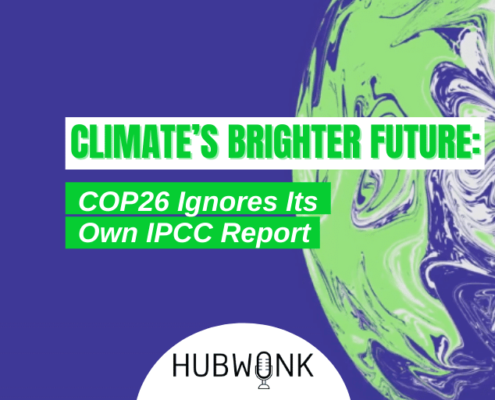
Climate’s Brighter Future: COP26 Ignores Its Own IPCC Report
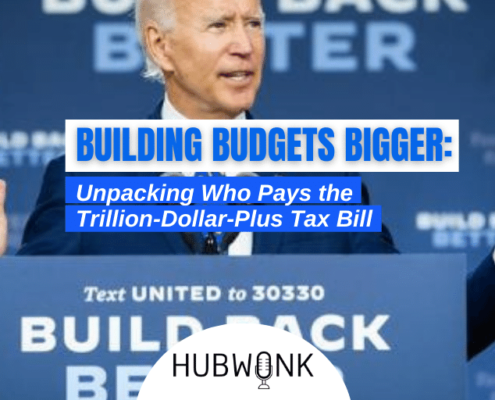
Building Budgets Bigger: Unpacking Who Pays the Trillion Dollar Plus Tax Bill

Supply Chains Understood: Covid’s Global Demand Stress Test
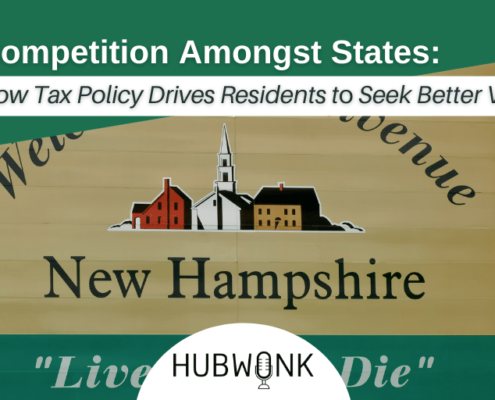
Competition Amongst States: How Tax Policy Drives Residents to Seek Better Value
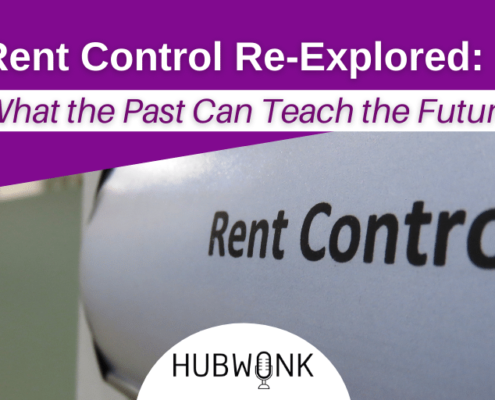
Rent Control Re-Explored: What the Past Can Teach the Future

Defusing Ideological Tribalism: Methods for Communicating Across Political Language Barriers

Marathon Endurance Test: Leaders Pave the Way for Boston’s Return


